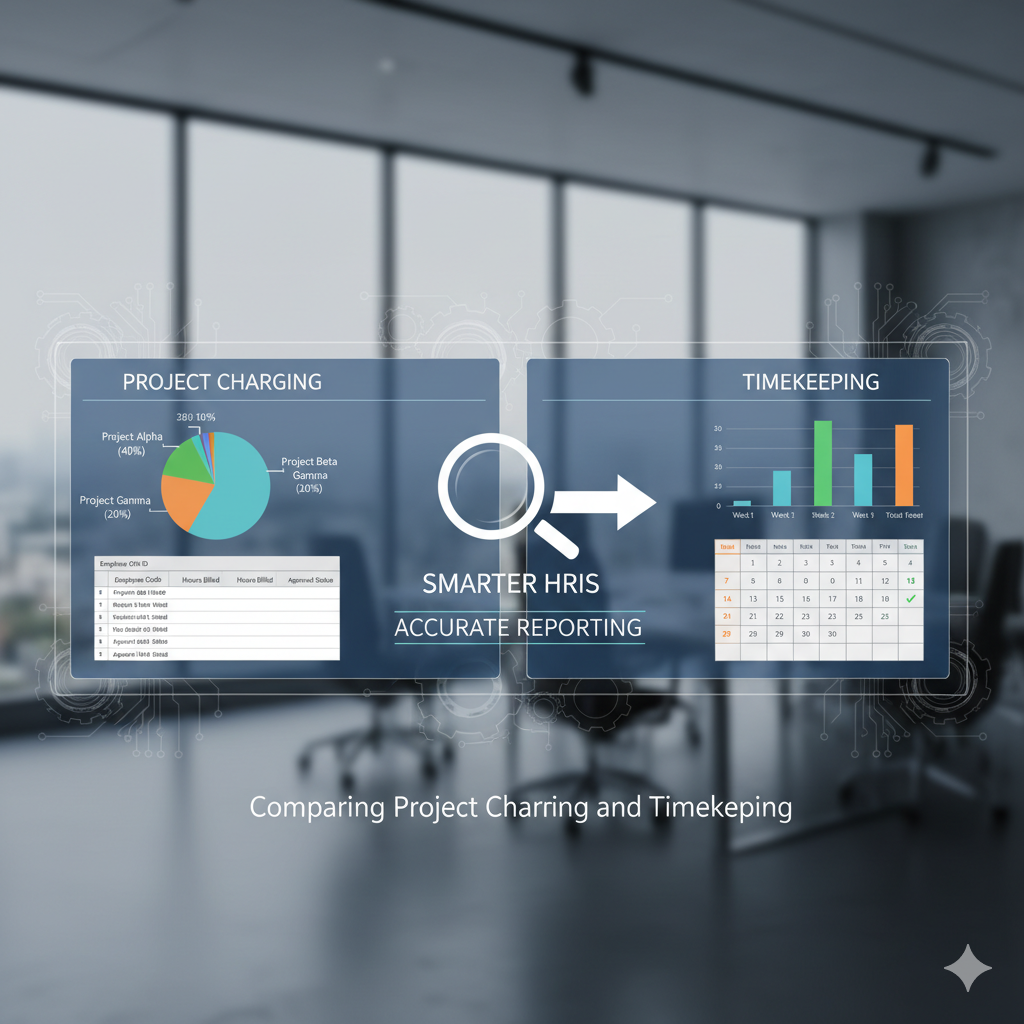In today’s competitive business environment, accurate tracking of employee work hours and project costs is critical. Human Resource Information Systems (HRIS) are evolving into smarter, integrated platforms that do more than just manage payroll or leave balances. One area that often causes confusion for HR professionals and managers is the distinction between project charging and timekeeping. While both deal with tracking employee hours, they serve different purposes and can significantly impact organizational reporting and decision-making.
What is Project Charging in HRIS?
Project charging refers to the process of assigning employee work hours directly to specific projects or cost centers. This enables organizations to:
- Track project-related labor costs accurately.
- Gain visibility into resource allocation.
- Identify which projects are consuming the most manpower and budget.
- Improve budget forecasting and cost control.
In essence, project charging connects employee time directly to business outcomes, making it easier for finance and project managers to evaluate profitability.
What is Timekeeping in HRIS?
Timekeeping is the process of recording the number of hours employees work on a daily, weekly, or monthly basis. Its primary functions include:
- Ensuring accurate payroll processing.
- Monitoring attendance and compliance with labor laws.
- Supporting overtime calculations.
- Providing HR with data on workforce productivity.
Unlike project charging, timekeeping does not necessarily tie hours to a specific project but focuses more on overall employee attendance and compensation.
Key Differences Between Project Charging and Timekeeping
| Feature | Project Charging | Timekeeping |
| Primary Purpose | Link hours to projects/cost centers | Track attendance and payroll |
| Users | Project managers, finance teams | HR, payroll specialists |
| Data Captured | Hours per project/task | Total hours worked, overtime, absences |
| Reporting Benefits | Cost allocation, project profitability | Payroll accuracy, compliance monitoring |
Both modules complement each other within an HRIS. Together, they provide a holistic view of workforce data.
Why Accurate Reporting Matters
Accurate reporting is essential for both HR and leadership teams. Here’s why:
- Financial Accuracy – Misallocated project hours can distort budgets and profitability metrics.
- Compliance – Accurate timekeeping ensures organizations adhere to labor regulations.
- Resource Optimization – Project charging helps businesses allocate talent to high-priority projects.
- Data-Driven Decisions – Integrated reporting allows executives to make smarter decisions on hiring, project investments, and workforce planning.
How Smarter HRIS Solutions Integrate Both
Modern HRIS platforms are designed to integrate project charging and timekeeping into a single system. This integration enables:
- Seamless transfer of time data between HR, payroll, and finance.
- Automated generation of both project-based and payroll reports.
- Real-time dashboards showing cost per project and employee productivity.
- Reduced manual errors through centralized data entry.
By combining these two elements, businesses not only ensure accurate reporting but also gain a competitive advantage through improved financial planning and workforce management.
Conclusion
When it comes to accurate reporting in HRIS, both project charging and timekeeping play pivotal roles. While timekeeping ensures compliance and payroll accuracy, project charging provides valuable insights into project costs and resource allocation. Organizations that adopt smarter HRIS solutions capable of integrating both will benefit from greater accuracy, efficiency, and strategic insights.
For businesses looking to optimize workforce management, the key is not choosing between project charging and timekeeping, but rather leveraging both within a unified HRIS system.

